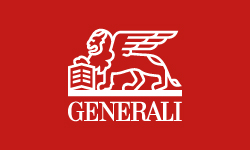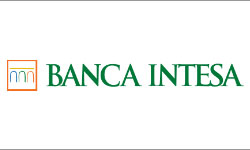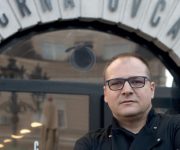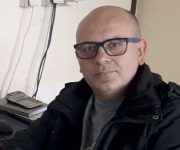Principal segments of the new economic milieu in Serbia will be speeding up the process of transition, a far greater taking into consideration of the businessmen’s and entrepreneurs’ demands and the encouragement of a greater competition on the market
With privatization we are somewhere at the middle. And that middle, on top of all that, looks as if we were halfway through a tunnel to which the exit cannot be discerned- Slobodan Milosavljević, president of the Chamber of Commerce of Serbia, says in the interview for Magazin Biznis.
– The way out of that phase is the achievement of a political consensus to finish privatization. Therefore, it is only the question of the stability of that future government and of the political agreement to do that. My attitude is that the consensus, that inter party agreement should imply the completion of the whole privatization, during the next two years at the latest.
I consider that immediately on the formation of the new government, a programme of speedy transition should be made: to organize in various cities auctions and tenders and to speed up privatization more significantly through the Share Fund. At the same time, that is, right away, preparation for the distribution of free shares from the Privatization Register, and to which all citizens of age who have not acquired them until now will be entitled.
The whole public sector remained out of the transition proceedings. There is an impression that the executive authority, whichever party personified it, steps back from opening that chapter?– In public enterprises great social tensions are prominent, because, viewing the situation objectively; those enterprises have a great number of employees. Beginning of the restructuring of such systems represents politically quite a risky move. Such measures in the execution phase cannot win political points. On the contrary, you must count on the negative points in advance, although so far here, it should be said, public enterprises have been perceived as party spoils.
Expectations
You participated in the 5 October movement of the year 2000. How did you then imagine the Serbia of 2007.? Have your expectations, as is the case with the majority of the citizens, been let down?– Yes, they have. That autumn of 2000. we truly believed that Serbia will be on the threshold of the European Union in 2007. The plan was to fulfill all requirements, all standards by then, in order to apply for membership in the European nations’ family in 2007. Unfortunately that did not happen and I think Serbia has lost that chance of a fast inclusion into the European Union with the assassination of Zoran Đinđić. That was the decisive moment. That is where the cutting edge of both transition and the European integrations was lost. And from the point of view of the situation of the past seven years, it would be disastrous if Serbia did not become a member of the European Union in the next seven years. I will personally consider that I have completely failed in politics if in 2014. Serbia is not in the European Union.
I am in favour of speeding up the restructuring and the privatization of EPS (Electric Power Industry of Serbia), NIS (Oil Industry of Serbia) and the other public enterprises as well, but in such a way that, at the shortest possible notice, new strategic partners are introduced, and not them to be sold.
What does the elaboration of that model look like?– Indeed, anyone prepared to invest into the production of electricity form hydroelectric power plants, thermoelectric power plants, windmills… Into these segments of EPS it is possible to invest billions with which Serbia could increase production, advance ecology and export of electric energy… The privatization of Bajina Bašta, or the Kolubara thermoelectric power plant- is to be done right away. But on the condition that the state keeps in its ownership the distribution, that is the network, because by that means it keeps the influence on the system so as to keep the energetic security of the country under control.
The Democratic Party, whose high official you are, will be the framework of the new government. It can be assumed that the new government will not be just the change of personal composition, but that it will also signify a new milieu?– Of course. Principal segments of that new milieu will be speeding up the process of transition in Serbia, a far greater taking into consideration of the businessmen’s and entrepreneur’s demands and the encouragement of a greater competition on the market. After that the encouragement of a greater competition on the market. We have already announced a few things, such as 1,000 new projects which would be financed out of the budget. There is also the redefining of priorities from the National Investment Plan. Unquestionably we need NIP, but the priorities have been set in a wrong way.
Are these the indications of a future economic policy?– Yes. We will plead for such economic policy, with an absolute fulfillment of Serbia’s international obligations, a continuation of European integrations and the attraction of at least two billion dollars a year of direct Greenfield investments which would open work posts in the production and service facilities. Then we will plead for investments through the projects of decreasing Serbia’s energetic dependence through the construction of oil and gas pipeline networks and the construction of secondary gas pipeline networks in towns and factories in order to reduce energy consumption and ensure ecology and product competitiveness.
What is your comment on the prolongation of the formation of a new government, because it seems that the whole first quarter of this year will pass in schemes?– Serbia is already at a terrible loss. It is at a loss because we are the only country which is not in the process of European integrations. Serbia is at a loss because there are no new investments. Serbia is at a loss because things that should help towards a better life of Serbian citizens are not happening. I believe that the government will be formed, but my estimations are that it will not come about before the first half of April, which is a big delay
In the election campaign economic issues were in the foreground, but as soon as the elections were over, political themes resumed precedence?– In the countries in transition, like ours, it is difficult to separate politics from the economy, economic politics from pure politics. This should be done for at least two reasons. Serbia is primarily a country in which great political turbulence is still happening. There is no year in which a political theme is not dominant for months. I must remind you that the first half of last year was marked by disputes about the separation of Serbia and Montenegro, and then Kosovo was on the agenda… This year the issue of resolving the status of Kosovo dominates, and there is also Ratko Mladić, the International Hague Tribunal, genocide in Srebrenica… all subjects in which the politicians fully dominate. We have simply been living in the clutches of the 90s’ politics to this very day.
What is the thing that Serbia does not have and the investors are looking for?– The investors are looking for a stable political situation, and Serbia, unfortunately, does not have that, and least not to the extent to which it is expected to have it. Continuity of carrying out of the corresponding development politics has not been maintained. Let us remember Mister Maršićanin who was announcing revisions of privatization, annulments, reevaluations… Furthermore, we are not competitive enough when it comes to transfer of profits and repatriation of capital. Repatriation of profits is something that Serbia must regulate, ensuring total freedom for the investors, and proving that the profits made here can be taken anywhere, on the condition that the one taking it out has paid all that is due to the state.
M. B.














